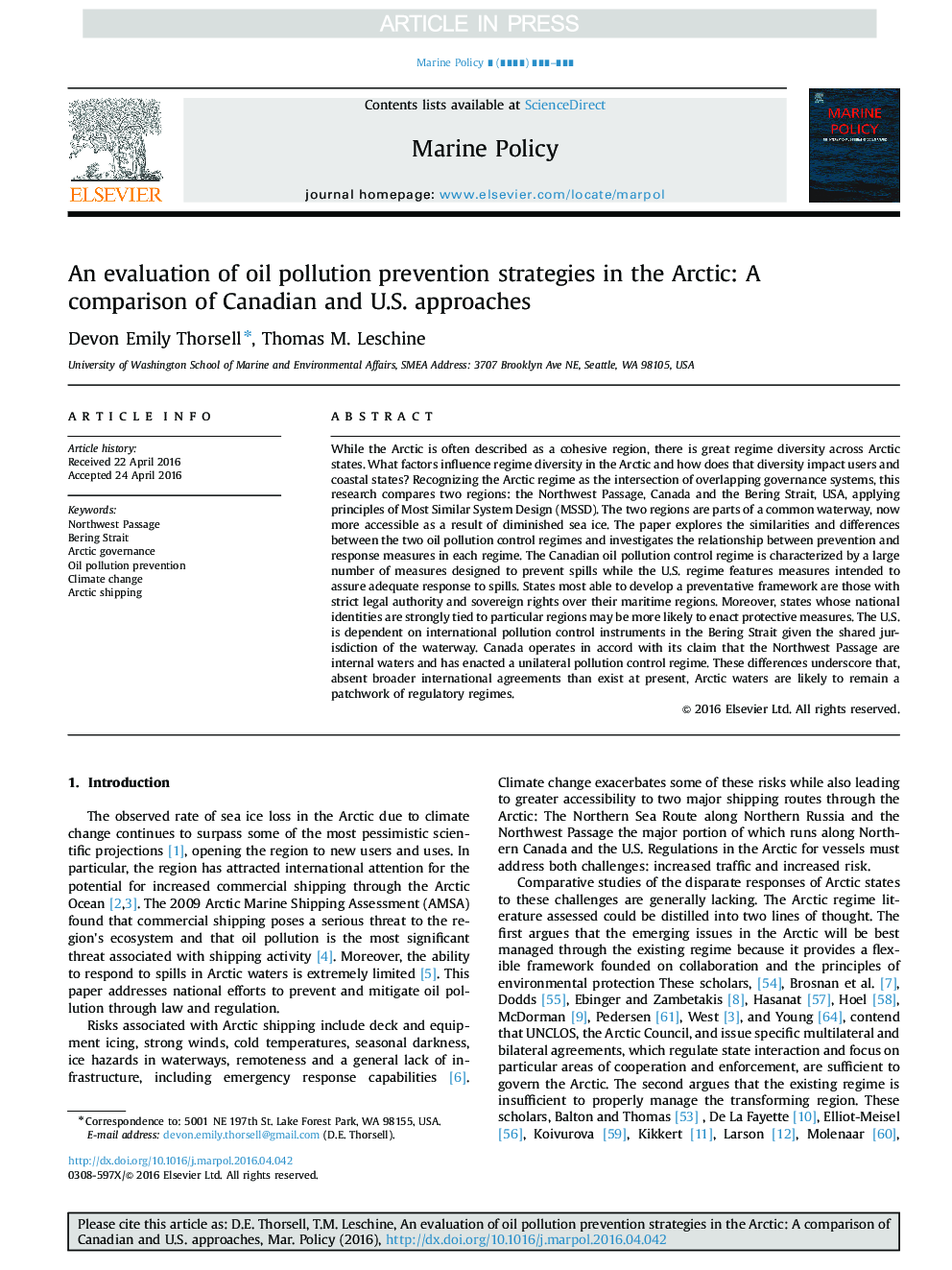| کد مقاله | کد نشریه | سال انتشار | مقاله انگلیسی | نسخه تمام متن |
|---|---|---|---|---|
| 7488937 | 1485507 | 2016 | 8 صفحه PDF | دانلود رایگان |
عنوان انگلیسی مقاله ISI
An evaluation of oil pollution prevention strategies in the Arctic: A comparison of Canadian and U.S. approaches
ترجمه فارسی عنوان
ارزیابی استراتژی های پیشگیری از آلودگی نفت در قطب شمال: مقایسۀ روش های کانادایی و ایالات متحده
دانلود مقاله + سفارش ترجمه
دانلود مقاله ISI انگلیسی
رایگان برای ایرانیان
کلمات کلیدی
گذرگاه شمال غربی، تنگه برینگ، حکومت قطب شمال، پیشگیری از آلودگی نفت تغییر آب و هوا، حمل و نقل قطب شمال،
موضوعات مرتبط
مهندسی و علوم پایه
سایر رشته های مهندسی
مهندسی دریا (اقیانوس)
چکیده انگلیسی
While the Arctic is often described as a cohesive region, there is great regime diversity across Arctic states. What factors influence regime diversity in the Arctic and how does that diversity impact users and coastal states? Recognizing the Arctic regime as the intersection of overlapping governance systems, this research compares two regions: the Northwest Passage, Canada and the Bering Strait, USA, applying principles of Most Similar System Design (MSSD). The two regions are parts of a common waterway, now more accessible as a result of diminished sea ice. The paper explores the similarities and differences between the two oil pollution control regimes and investigates the relationship between prevention and response measures in each regime. The Canadian oil pollution control regime is characterized by a large number of measures designed to prevent spills while the U.S. regime features measures intended to assure adequate response to spills. States most able to develop a preventative framework are those with strict legal authority and sovereign rights over their maritime regions. Moreover, states whose national identities are strongly tied to particular regions may be more likely to enact protective measures. The U.S. is dependent on international pollution control instruments in the Bering Strait given the shared jurisdiction of the waterway. Canada operates in accord with its claim that the Northwest Passage are internal waters and has enacted a unilateral pollution control regime. These differences underscore that, absent broader international agreements than exist at present, Arctic waters are likely to remain a patchwork of regulatory regimes.
ناشر
Database: Elsevier - ScienceDirect (ساینس دایرکت)
Journal: Marine Policy - Volume 72, October 2016, Pages 255-262
Journal: Marine Policy - Volume 72, October 2016, Pages 255-262
نویسندگان
Devon Emily Thorsell, Thomas M. Leschine,
